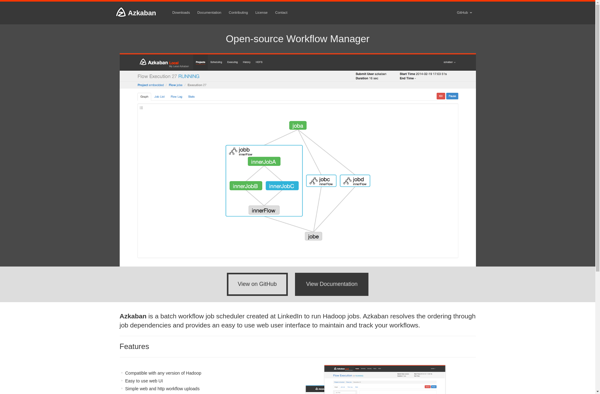Shipyard - Data Orchestration
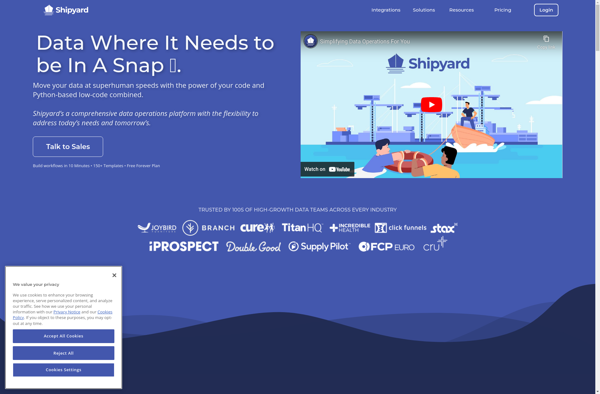
Shipyard: Open Source Data Orchestration Platform
Shipyard is an open source data orchestration platform that allows you to easily build and manage pipelines for ETL, data integration, and workflow automation. It provides a graphical interface to visualize your pipelines.
What is Shipyard - Data Orchestration?
Shipyard is an open source data orchestration and workflow automation platform designed to help teams easily build, schedule, orchestrate and monitor pipelines. It provides an intuitive graphical interface to visualize your data pipelines and comes with over 300 pre-built components and templates.
Key capabilities and benefits:
- Graphical pipeline designer to visually create workflows
- Drag-and-drop interface to connect data sources, transformation steps, targets
- Schedule and orchestrate batch, streaming and event-driven pipelines
- Out of the box components for file, database, messaging, API connections
- Monitor pipeline runs with logs, metrics and alerts
- Role based access control for team collaboration
- Integrations with Kubernetes, Docker, AWS, GCP and other platforms
- Active open source community with ~2 releases per month
With its code-free graphical interface and library of pre-built components, Shipyard can help simplify and accelerate the process of implementing data pipelines for use cases like ELT, ETL, data integration, workflow automation etc.
Shipyard - Data Orchestration Features
Features
- Graphical interface to design and monitor pipelines
- Support for Docker containers to run pipelines
- Built-in library of preconfigured containers
- Integration with Kubernetes for container orchestration
- Supports common data formats like JSON, CSV, Avro
- Built-in scheduler
- Role based access control
- REST API
- CLI access
- High availability mode
Pricing
- Open Source
Pros
Cons
Official Links
Reviews & Ratings
Login to ReviewNo reviews yet
Be the first to share your experience with Shipyard - Data Orchestration!
Login to ReviewThe Best Shipyard - Data Orchestration Alternatives
Top Ai Tools & Services and Data Integration and other similar apps like Shipyard - Data Orchestration
Pipedream
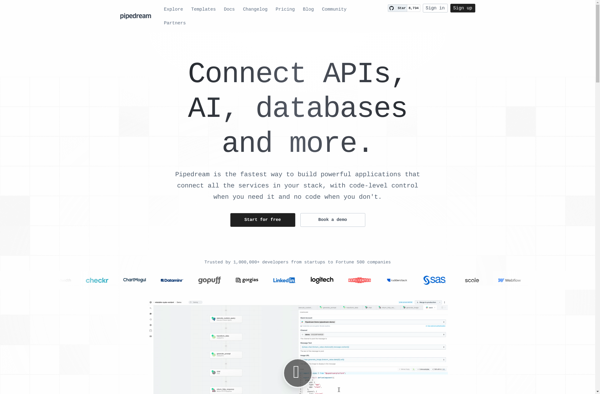
Kestra
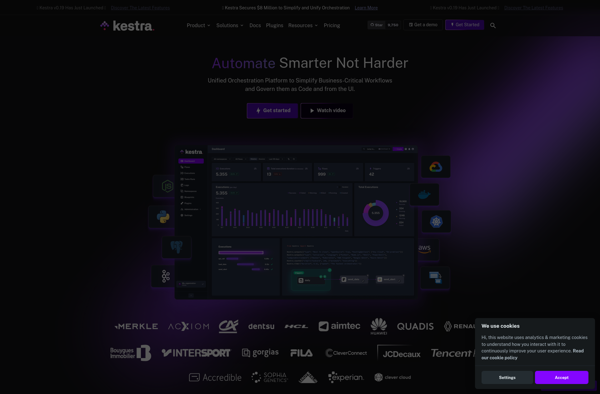
Luigi
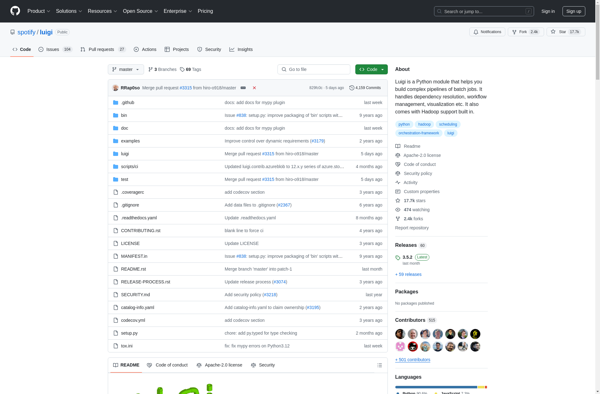
Metaflow
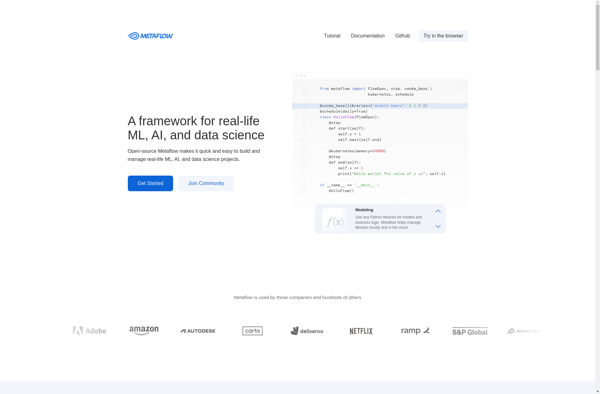
Azkaban
